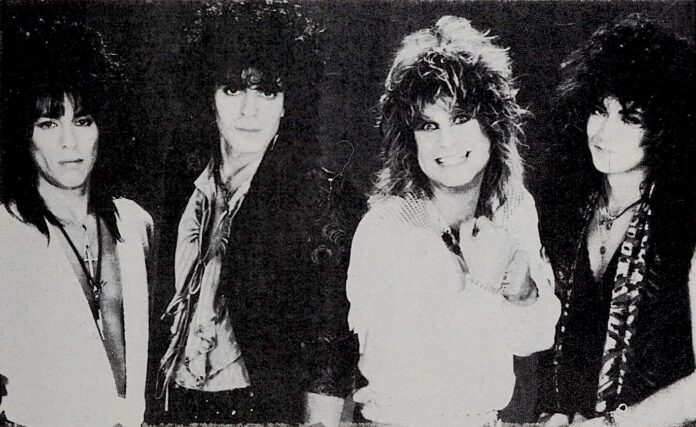In the days after the passing of Ozzy Osbourne—76-year-old lead singer of Black Sabbath and later solo artist dubbed “The Prince of Darkness” who became the godfather of metal—the world watched his musical catalog surge up, way up, the Spotify and Apple Music charts.
As a kid who grew up in the ’80s, raised on MTV, I, like many in that generation, assumed that the first mention in his eventual obituary would involve biting the head off a bat, a dove, or something else outrageous. That was Ozzy back then.
But selling over 100 million albums, including his solo work and Black Sabbath releases (not to mention being inducted into the Rock and Roll Hall of Fame with his band in 2006 and as a solo artist in 2024)? Unexpected. Those are, uh, Taylor Swift or American Songbook numbers. Not heavy metal. Right?
Somehow this son of a factory worker and toolmaker—who suffered from dyslexia and grew up in the dark and depressing Birmingham, England (that’s how Black Sabbath described the area at that time, folks)—took the vibe of isolation, darkness, and melodramatics and weaponized it into a musical Bat Signal that attracted multigenerational hordes of fans—and billions in cash.
Listen, without Ozzy, we don’t have Spinal Tap. Marinate on that.
When I was a puffy Afro-haired kid entering seventh grade, I met this Levi’s jean jacket-wearing, Marlboro Reds-smoking kid in my neighborhood named Sean Wedge. Some white dude entering ninth grade decided that I needed to expand my knowledge and learn intensely about rock and heavy metal. No Luther, no MJ, no Prince. So, I started metal school every day after I got home from junior high. There were quizzes, tests, and spelling tutorials on Van Halen (before Sammy Hagar, come on!), AC/DC, ASIA, Billy Squire, Journey, Def Leppard, Rush, Scorpions, Black Sabbath, and of course, Ozzy.
To say my parents didn’t care for Mr. Sean Wedge was an understatement—I believe they put me in summer camp because of the white homie. I think it was the Marlboro Reds. However, I am indebted to that metalhead, because just like today, I love finding out about music you might not otherwise; it broadens your world. Funny enough, years later, I found out my music writing hero, Nelson George, got his break at Billboard back in the day writing about metal. Music is music, people.
Billy Corgan of Smashing Pumpkins and Tom Morello of Rage Against the Machine both credited Black Sabbath’s powerful riffs and Ozzy Osbourne’s raw, uniquely flawed vocal style as the inspiration for starting their bands. The anger-fueled performances, where Ozzy’s voice could be unpredictable, still resonated deeply; what mattered most was that his persona felt authentic to the core.
The number of Ozzy Osbourne cover songs performed by various artists remains staggering but also reflects the global popularity of this one-of-a-kind metal hero, so let’s check out some of Ozzy’s best songs performed by various groups of artists.
RIP Ozzy Osbourne. Let’s Bark at The Moon:
T-PAIN, “WAR PIGS“
Before I had my heavy metal tutorial, I used to hear “War-Pigs” all over rock stations and never felt one way or another about it. The song was just there, rocking thee eff out. But I gotta give it up to T-PAIN for taking this still relevant anti-war anthem to places I had no idea Black Sabbath could go. Supposedly, Ozzy said he loved this cover, and I believe him. It’s on some rock-funk goodness.
LARKIN POE, “MAMA, I’M COMING HOME”
Sometimes, people like to fully give in to their emotions and let everything out. Ozzy Osbourne’s song “Mama, I’m Coming Home” is about recovery and returning to a supportive relationship, specifically dedicated to his wife, Sharon Osbourne. The simplicity and sincerity of the emotions conveyed in the song are often all you need to communicate the message effectively. Larkin Poe, an American roots rock band led by sisters Rebecca and Megan Lovell, captures the fragility of the guitar parts with their folk-inspired approach to performance.
This version of the song feels anti-dramatic and fully lived in.
SCARY POCKETS & CODY FRY, “CRAZY TRAIN”
It’s in these situations that the internet remains undefeated. I guess there is this funk band, Scary Pockets, yeah, that does weekly releases, music videos, and covers, in pursuit of the funk. So this is the nonchalant funk cover, or as someone in the comments breaks it down: Funk + Ozzy = Fozzy. YouTube comments are undefeated, too.
SIR MIX-A-LOT, “IRON MAN“
Rap and rock have a long history of entwinement. A significant moment in this fusion was Run-DMC’s “Walk This Way,” which featured Aerosmith and brought the two genres together on a mainstream level, particularly through its MTV heavy rotation music video. Additionally, Sir Mix-A-Lot, known for his hit “Baby Got Back,” was an early attendee at Ozzfest. This version of “Iron Man” is bold, bass-heavy, and unapologetic in its sound. With a real gully production style, the metal vibe remains strong, challenging hip-hop fans with the question, “Do you see the connection?”
CHARLES BRADLEY, “CHANGES”
Black Sabbath wrote the song “Changes” primarily about the pain of a marital breakup. But what the late great Charles Bradley does to this tune is give it a different, very much so elevated, heartfelt soulfulness by processing it through his own pain. Songs like these are what the Daptone label was able to achieve nonstop, when Bradley and Sharon Jones (RIP) were giving other indie labels a run for their money. Grab your Kleenex, people.







